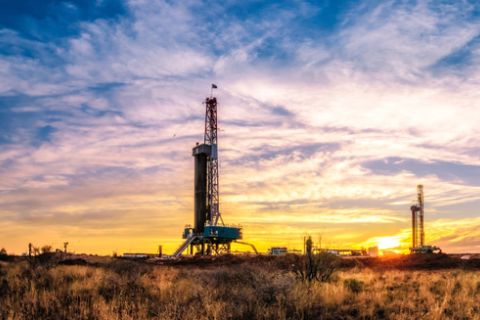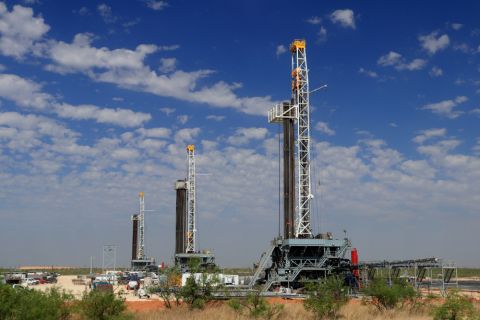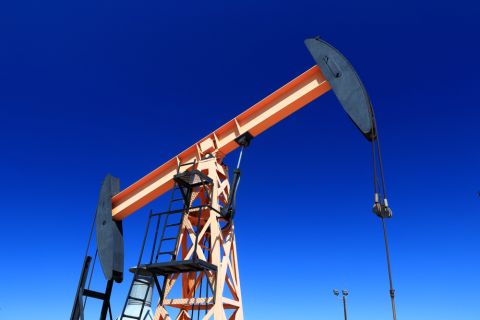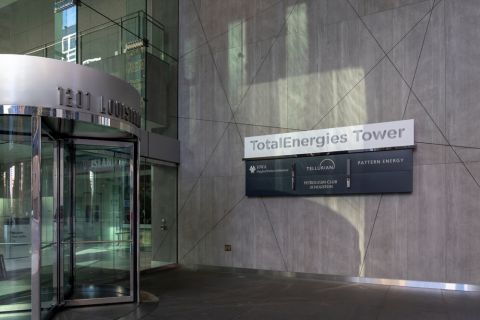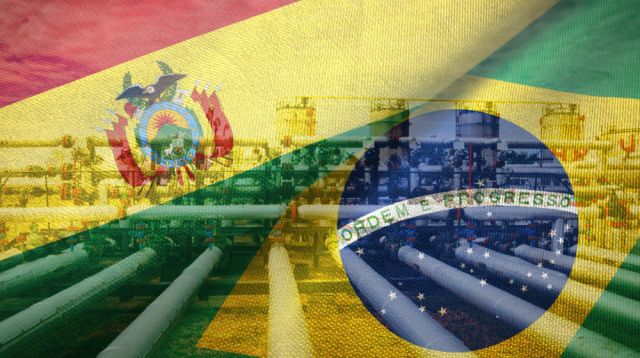
Bolivia aims to boost its supply of natural gas, eyeing export opportunities in neighboring Brazil. (Source: Shutterstock.com)
RIO DE JANEIRO—Bolivía’s government recently announced its intention to expand the country’s natural gas supply to Brazil and Argentina by 4 million cubic meters per day (MMcm/d).
To achieve this goal, the South American country aims to improve the performance of Bolivia’s state-owned gas company, YPFB, which intends to drill 26 wells this year alone, according to Bolivian President Evo Morales.
“We are going to drill in the Madre de Dios basin, which will be for the departments of Pando, Beni and the north of La Paz,” Morales said during a speech.
The exploration campaign is expected to double the country’s gas reserves from 10.7 trillion cubic feet (Tcf) to 20 Tcf by 2025. The 26 wells will be drilled in 23 areas, including Beni, Pando, La Paz and Cochabamba. Investments of US$900 million in exploration activities carried out by Royal Dutch Shell, Repsol, Pan American Energy and state-owned companies YPFB Andina and YPFB Chaco are underway.
The effort is part of Bolivia’s goal to maintain interest of neighboring markets, especially Brazil, for Bolivian gas. The two countries negotiate gas supply contracts for the Brazilian market. The latest estimate of gas contracted by Brazil’s Petrobras is expected to fall from 30 MMcm/d to about 20 MMcm/d. There is also the possibility that 10 MMcm/d will be contracted through direct purchase by gas distributors.
“Evo Morales wants to approach [the] Brazil government at a key moment for the definition of the future of the commercial relationship between the two countries,” said Yana Santos, a researcher at Rio de Janeiro Federal University. The “Bolivian natural gas export contract to Brazil will expire at the end of 2019. The renewal of this contract is vital for Bolivia and for Morales.”
In 2018, gas exports to Brazil generated revenues of $1.54 billion for Bolivia. This number accounted for 94% of all Brazil imports from Bolivia, according to data from Brazil’s Economy Ministry. In 2017, revenues from gas sales to Brazil represented 3.2% of Bolivia’s GDP. The Bolivian state-owned YPFB intends to soon present a proposed new contract to a group of pipeline gas distributors in Brazil.
In December, Bolivia’s output was 37 MMcm/d. On average, the country’s domestic consumption is about 10 MMcm/d. At year-end 2018, Brazil imported 13.4 MMcm/d. Bolivia exported roughly 8.8 MMcm/d to Argentina.
“With the expected reduction of exports to Argentina, companies operating in Bolivia will have volumes available and will be able to seek a market for these volumes in Brazil,” said Marco Tavares, consultant at Gas Energy. “All these companies that operate in Bolivia and also have assets in Brazil are natural candidates.”
But Brazil is not as dependent on Bolivian gas as it was 20 years ago. Brazilian presalt E&P activity has boosted gas production. In February, natural gas output in Brazil reached 110 MMcm/d, up 0.3% compared to a year earlier, according to ANP, Brazil’s oil regulator..
In addition, the use of natural gas in Brazil in February reached 95.4% of the total amount produced. ANP said 56.2 MMcm/d were made available to the Brazilian domestic market.
Brazil’s Energy Ministry is currently working to increase domestic consumption of natural gas produced in Brazil.
During a conference in March, Brazil’s Energy Minister Bento Albuquerque said the natural gas market must be deconcentrated. He defended the opening of the market to attract investments, increase the natural gas trade and improve the electric sector. Albuquerque estimated the segment will need roughly $13 billion by 2030 to improve infrastructure and expand natural gas presence in Brazil to boost domestic consumption.
Recommended Reading
Comstock Continues Wildcatting, Drops Two Legacy Haynesville Rigs
2024-02-15 - The operator is dropping two of five rigs in its legacy East Texas and northwestern Louisiana play and continuing two north of Houston.
TPH: Lower 48 to Shed Rigs Through 3Q Before Gas Plays Rebound
2024-03-13 - TPH&Co. analysis shows the Permian Basin will lose rigs near term, but as activity in gassy plays ticks up later this year, the Permian may be headed towards muted activity into 2025.
CEO: Continental Adds Midland Basin Acreage, Explores Woodford, Barnett
2024-04-11 - Continental Resources is adding leases in Midland and Ector counties, Texas, as the private E&P hunts for drilling locations to explore. Continental is also testing deeper Barnett and Woodford intervals across its Permian footprint, CEO Doug Lawler said in an exclusive interview.
To Dawson: EOG, SM Energy, More Aim to Push Midland Heat Map North
2024-02-22 - SM Energy joined Birch Operations, EOG Resources and Callon Petroleum in applying the newest D&C intel to areas north of Midland and Martin counties.
TotalEnergies Acquires Eagle Ford Interest, Ups Texas NatGas Production
2024-04-08 - TotalEnergies’ 20% interest in the Eagle Ford’s Dorado Field will increase its natural gas production in Texas by 50 MMcf/d in 2024.

